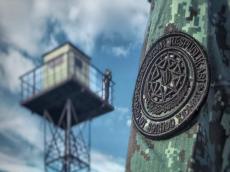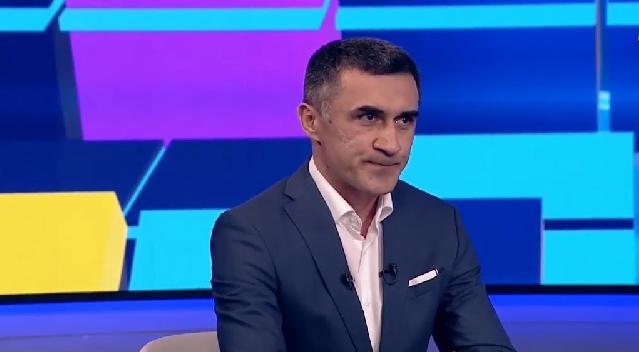|
|
TODAY.AZ / Politics
Military expert: by such provocations Armenia loses its status as sovereign state
15 June 2023 [17:00] - TODAY.AZ
 By Azernews
By AzernewsThe South Caucasus has been living one of its most active days recently. The visit of Aide to Russian President Igor Levitin and Turkish President Recep Tayyip Erdo?an to Azerbaijan, as well as the statement of the Iranian official on reopening of the embassy amid the Turkish President's visit in Azerbaijan, can be interpreted according to very important points.
Today, at a time when the National Salvation Day is being celebrated in Azerbaijan, and on the eve of Pakistan's Prime Minister Shebaz Sharif's official visit to Baku, Armenian armed groups' firing at the positions of the Azerbaijan Army and the border checkpoint in Lachin in order to destabilize the situation, and most importantly injuring one of our soldiers at the Lachin BCP cannot be considered a coincidence.
At the same time, very hot processes continue inside Armenia. Thus, in an interview with foreign news outlets, the Armenian opposition emphasized that they would do everything to halt Pashinyan, at the same time, France voiced a groundless statement against Azerbaijan over the Lachin-Khankendi road.
As a result, the question arises, what are the reasons behind all the happenings? Or is it possible that the events have any connection with each other?

In a comment for Azernews on the issue, military expert and political analyst Alparslan Imamgulu noted that today, the sides and alliances are being defined in the region, and it causes irritation to some forces.
“The defining of Azerbaijan's allies was mainly determined after Azerbaijan’s Patriotic War. Turkiye and Pakistan can be mentioned among these allies. Finding new allies and strengthening relations with them is important in this regard. There are even states that want to be an obstacle to this,” the expert said.
He noted that a proxy war is ongoing in the region, and Armenia is a tool and is used as a leverage by other countries, including Russia.
“As it can be seen that the state of Azerbaijan has repeatedly issued warnings and remarks to Armenia, official Yerevan does not want to draw conclusions from it. In such a case, Armenia loses its status as a sovereign state. This step of Armenia once again shows that it does not have an independent political position and is used as an instrument in the hands of the West and Russia for various purposes."
As for the position of the Armenian opposition, and provocations by opposition groups within the Armenian Army, he noted that there are several factions not only in Armenian Army but also in Armenian authority. The strongest of these factions are pro-Russians, said the expert.
“I do not rule out that there some forces in Russia behind this provocation. Whether it be Azerbaijan’s conventional state border with Armenia or the situation in Karabakh. Since Russia does not want to withdraw its troops from the South Caucasus, pro-Russian forces try to obstruct every step taken for peace. If this provocation is happening on the conventional border, it proves that the Armenian army is still under the influence of those forces. Because the population of Armenia has been in a desperate situation for 2 years. On the one hand, Pashinyan's foreign policy orients to the West, on the other hand, a number of political wings of Armenia are in favor of Russia. i have no doubt that pro-Russian forces are making such provocations to change the direction of Armenia's political vector,” he added.
He also pointed out that Russian press information, Russian media outlets, and the contents of their programs pamper Armenia by backing them.
“Today, if we follow some press information in Russian media, we will see that we are pointed as perpetrators of provocations. Even some media organizations, in addition to spreading biased information, also present Armenian territories as their territories on behalf of Russia. Allegedly, the Russian state is always with Armenia. This is indeed a comprehensive and deliberate provocation that some forces want to carry out,” Alparslan said.
URL: http://www.today.az/news/politics/236102.html
 Print version
Print version
Connect with us. Get latest news and updates.
See Also
- 25 April 2025 [15:19]
Kaja Kallas: EU-Azerbaijan ties advancing on a ‘two-way path’ - 25 April 2025 [13:22]
Azerbaijan, Uzbekistan hold working meeting on defense cooperation in Baku - 25 April 2025 [12:52]
Azerbaijan’s foreign minister hosts EU’s top diplomat - 25 April 2025 [12:01]
Washington sees peaceful protest against 'Armenian Genocide' claims - 25 April 2025 [11:11]
Sergeant came out of the fog: are they preparing another batch of riots in Armenia? - 25 April 2025 [11:02]
Azerbaijan, Russia strengthen agricultural ties in online ministerial meeting - 25 April 2025 [03:21]
Cort hearing explains shooting down of Azerbaijani helicopter by Armenian armed forces - 24 April 2025 [15:00]
Armenia expands military activities towards Iranian border, warns Azerbaijani official - 24 April 2025 [14:23]
VP of Heydar Aliyev Foundation visits Chinese National Human Genome Center - 24 April 2025 [11:45]
Pashinyan condemns burning of Azerbaijani and Turkish flags during torchlight procession
Most Popular
 Turkiye opens new chapter in space with TÜRKSAT 6A
Turkiye opens new chapter in space with TÜRKSAT 6A
 Khankendi to host 17th Economic Cooperation Organization Summit
Khankendi to host 17th Economic Cooperation Organization Summit
 Armenia's accusations are misinformation, says Azerbaijani Defense Ministry
Armenia's accusations are misinformation, says Azerbaijani Defense Ministry
 First Indonesian Hajj pilgrims to reach Saudi Arabia next week
First Indonesian Hajj pilgrims to reach Saudi Arabia next week
 Middle Corridor project progresses, Kazakhstan-Azerbaijan cooperation strengthens
Middle Corridor project progresses, Kazakhstan-Azerbaijan cooperation strengthens
 Ankara, Washington seek common ground on customs tariffs
Ankara, Washington seek common ground on customs tariffs
 China send its next space mission into orbit
China send its next space mission into orbit
